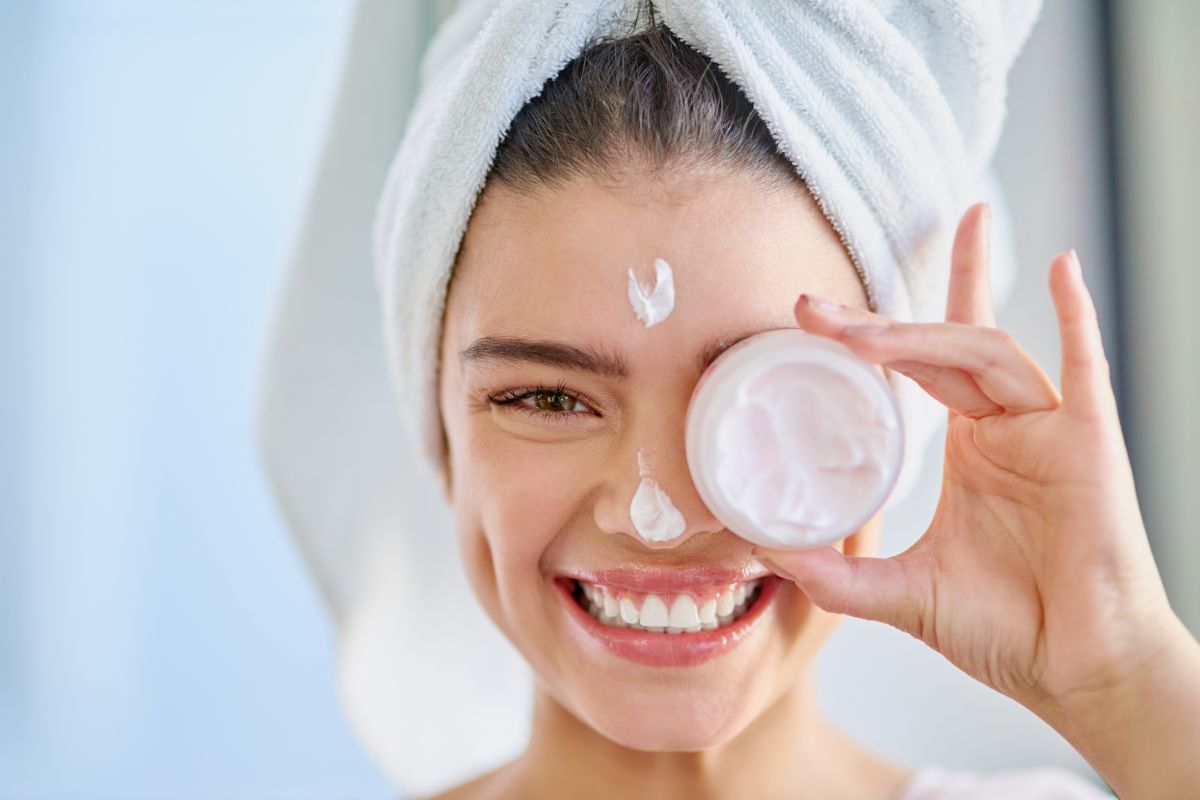Your skin is not only the largest organ in your body but also a reflection of your overall health. While skincare products and routines play a significant role in skin health, the food you eat can have a profound impact on how your skin looks and feels. By making some strategic dietary changes, you can enhance your skin’s appearance and boost its health. Let’s explore the key nutrients and foods that can help you achieve glowing, healthy skin.
1. Antioxidants: The Skin’s Best Friends
Antioxidants are compounds that protect your skin treatment from oxidative stress caused by free radicals. Free radicals can lead to premature aging and skin damage, so antioxidants help neutralize them.
- Vitamin C: This powerful antioxidant helps to combat free radicals and promotes collagen production, which is essential for skin elasticity and firmness. Incorporate foods like oranges, strawberries, kiwi, and bell peppers into your diet.
- Vitamin E: Another potent antioxidant that helps protect your skin from damage. Nuts, seeds, and green leafy vegetables like spinach are excellent sources of vitamin E.
- Beta-Carotene: This antioxidant converts to vitamin A in your body, which is crucial for skin repair and maintenance. Foods rich in beta-carotene include sweet potatoes, carrots, and butternut squash.
2. Healthy Fats: Essential for Skin Hydration
Healthy fats help maintain the skin’s moisture barrier, keeping it hydrated and supple.
- Omega-3 Fatty Acids: These essential fats reduce inflammation and can help with skin conditions like acne and eczema. Include fatty fish such as salmon, mackerel, and sardines in your diet, or opt for plant-based sources like flaxseeds, chia seeds, and walnuts.
- Avocados: Rich in monounsaturated fats and vitamins E and C, avocados nourish and hydrate the skin.
3. Hydration: The Cornerstone of Healthy Skin
Staying hydrated is fundamental for skin health. Dehydrated skin can look dull and flaky.
- Water: Aim to drink at least 8 cups of water a day to keep your skin hydrated from the inside out.
- Water-Rich Fruits and Vegetables: Foods like cucumbers, watermelon, and oranges not only hydrate but also provide essential vitamins and minerals.
4. Minerals for Skin Repair
Certain minerals play critical roles in maintaining skin health and promoting healing.
- Zinc: Essential for collagen synthesis and repair. Good sources of zinc include pumpkin seeds, chickpeas, and lentils.
- Selenium: An antioxidant that helps protect your skin from damage. Brazil nuts are an excellent source of selenium.
5. Protein: Building Blocks for Skin Health
Proteins are necessary for the production of collagen and elastin, which keep your skin firm and youthful.
- Lean Meats and Poultry: Chicken and turkey are great sources of protein.
- Plant-Based Proteins: Beans, lentils, and tofu offer high-quality protein for those following a vegetarian or vegan diet.
6. Low Glycemic Foods: Balancing Blood Sugar Levels
High-glycemic foods can cause spikes in blood sugar levels, which may lead to acne and other skin issues.
- Whole Grains: Opt for whole grains like quinoa, brown rice, and whole-wheat bread over refined grains.
- Fruits and Vegetables: Choose fresh fruits and vegetables instead of processed snacks and sugary treats.
7. Probiotics: Supporting a Healthy Gut
A healthy gut can positively impact your skin health.
- Fermented Foods: Foods like yogurt, kefir, sauerkraut, and kimchi contain probiotics that support gut health and, by extension, skin health.
8. Avoiding Harmful Foods
Certain foods can negatively affect your skin and exacerbate issues like acne or dryness.
- Sugary Foods and Beverages: Excessive sugar can lead to insulin spikes and inflammation, which may trigger acne.
- Processed Foods: High in unhealthy fats and additives, processed foods can contribute to skin problems.
Sample Skin-Boosting Meal Plan
Here’s a simple meal plan to get you started on your skin-healthy diet:
Breakfast:
- Greek yogurt with fresh berries, a drizzle of honey, and a sprinkle of chia seeds.
Lunch:
- Quinoa salad with avocado, bell peppers, cherry tomatoes, and a lemon-tahini dressing.
Snack:
- A handful of almonds and a piece of fruit, like an apple or pear.
Dinner:
- Grilled salmon with a side of steamed broccoli and sweet potato mash.
Dessert:
- A small bowl of mixed fruit, such as watermelon and kiwi.
Conclusion
Your diet plays a crucial role in the health and appearance of your skin. By incorporating antioxidant-rich foods, healthy fats, adequate hydration, and proteins, and avoiding processed foods and excessive sugars, you can significantly enhance your skin’s look and feel. Remember, changes in diet take time to show results, so be patient and consistent with your new eating habits for the best outcomes.





Comments